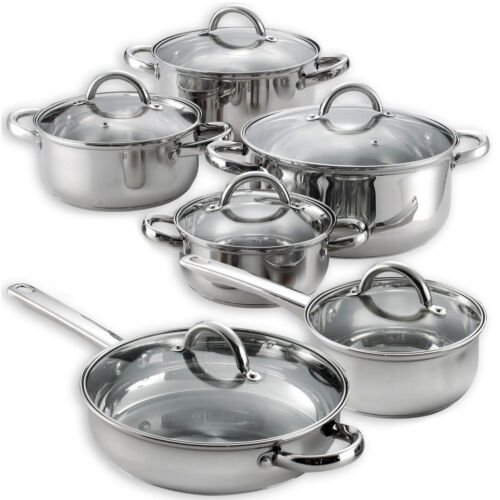Exploring the Different Types of Cooking Pots Used in Nigerian Cuisine
Exploring the Different Types of Cooking Pots Used in Nigerian Cuisine
Nigerian cuisine is a vibrant and diverse way of cooking, due to the country’s rich culture and history. Many traditional dishes are cooked in a variety of different cooking pots, each with its own distinctive shape, size, and material. From traditional earthenware pots to modern aluminum cooking vessels, every type of pot brings its own flavor and texture to a dish. In this article, we’ll explore the unique cooking pots that are used in Nigerian cuisine and how they contribute to the flavor and texture of the dishes they help create. From the classic earthenware ogbono pot to the larger, more versatile aluminum pot, each type of cooking pot offers a unique way to bring a delicious Nigerian dish to life.
Exploring the Different Types of Cooking Pots Used in Nigerian Cuisine
Earthenware pots – Also known as ogbono pots, earthenware pots are a signature piece of Nigerian cuisine. These pots are made from a hearty, porous clay that has been fired at extremely high temperatures, creating a hard, durable cooking vessel that is safe to use on stovetops. The porous, earthy nature of the clay used in these pots lends a distinct flavor to Nigerian dishes, which is a staple in the cuisines of other West African countries as well. Aluminum pots – These pots are a modern alternative to earthenware pots, and they are widely used in Nigerian households. Aluminum pots are lighter than earthenware, so they are easier to handle during cooking, and they also provide a variety of health benefits. These cooking pots are non-reactive, which means they do not react with the ingredients you cook in them and change their flavor or texture. This makes them ideal for cooking a variety of different dishes. Clay pots – Clay pots are similar to earthenware pots in that they are porous and porous pots. These pots are made from the same materials as earthenware pots, but they are not fired in the same way. This means that clay pots are not as hard or durable as earthenware pots and cannot be used on stovetops. This makes clay pots ideal for boiling, simmering, and making stews, but less suited for frying or other high-heat cooking methods. Cast iron pots – These pots are ideal for cooking stews and slow-simmered dishes. Cast iron pots hold heat very well and distribute it evenly, so they can be used to cook dishes at a variety of different temperatures, making them extremely versatile. They are also very durable and sturdy, making them ideal for cooking larger dishes and larger quantities, and they can be used to cook in all types of weather, making them a great addition to any kitchen. Understanding the Flavor and Texture of Nigerian Dishes In addition to the materials used to make them, the different shapes and sizes of Nigerian cooking pots are also important. Many traditional Nigerian dishes are made in large quantities, and bigger cooking pots are best for this. Nigerian recipes often call for dishes to be cooked slowly over a long period of time. This is because many Nigerian dishes are stews, soups, or other slow-cooked dishes, and larger pots are better for this. In some cases, cooking pots are also used as serving vessels, meaning the food is cooked in them and then placed in another vessel or dish for serving.
Key Benefits of Different Types of Cooking Pots
Different types of cooking pots have their own benefits, but there are a few key benefits common to all cooking pots. These cooking pots are ideal for slow-cooked dishes and are better for large quantities of food. They are also sturdy and durable, making them perfect for repeated use. Pot lids are often used to cover pots, but they can create an airtight seal that prevents steam from escaping, leading to a longer cooking time and a higher risk of food burning. Rims are better for covering pots, as they allow steam to escape, which helps food to cook more quickly. Using a variety of different types of cooking pots ensures you have the best vessel for each dish.
Tips for Cooking with Different Types of Nigerian Cooking Pots
– Always read the care instructions for each type of cooking pot before you use it. Some pots are dishwasher-safe, while others require hand-washing, and some pots are suitable for certain types of foods and not others. – Ensure you have a well-equipped kitchen with a variety of different types of cooking pots. Some pots are better for certain types of dishes, while others are better for more general cooking. – When cooking larger quantities of food, use larger pots, such as stockpots or large saucepans.
Conclusion
Nigerian cuisine is a vibrant and diverse way of cooking, due to the country’s rich culture and history. Many traditional dishes are cooked in a variety of different pots, each with its own distinctive shape, size, and material. From traditional earthenware pots to modern aluminum pots, every type of dish brings its own flavor and texture to a dish. In this article, we’ll explore the different types of pots used in Nigerian cuisine and how they contribute to the flavor and texture of the dishes they help create. From the classic earthenware pot to the larger, more versatile aluminum pots, each type of cooking pot offers a unique way to bring a delicious Nigerian dish to life








LEAVE A COMMENT
You must be logged in to post a comment.